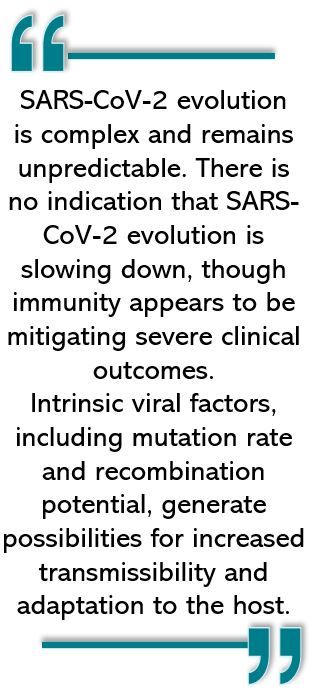- Clinical Technology
- Adult Immunization
- Hepatology
- Pediatric Immunization
- Screening
- Psychiatry
- Allergy
- Women's Health
- Cardiology
- Pediatrics
- Dermatology
- Endocrinology
- Pain Management
- Gastroenterology
- Infectious Disease
- Obesity Medicine
- Rheumatology
- Nephrology
- Neurology
- Pulmonology
Monovalent Vaccine Against SARS-CoV-2 XBB Lineage Leads June 15 VRBPAC Meeting Agenda
The FDA advisory committee will review all current surveillance data and recommend which strain/s to include in updated COVID-19 vaccines for the 2023-2024 vaccination campaign.

According to a briefing document published Monday, June 12, by the US Food and Drug Administration, the agency's Vaccines and Related Biological Products Advisory Committee (VRBPAC) meets today in an open session to discuss and recommend COVID-19 vaccine selection for the 2023-2024 season.
In section 3.2 of the document, focused on current virus surveillance, FDA states that sublineages of the SARS-CoV-2 XBB variant accounted for approximately 95% of the circulating virus variants in the US by early June 2023. The agency suggests that based on the preponderance of evidence, " a monovalent XBB-lineage vaccine is warranted."
At a recent meeting of international regulatory authorities convened to discuss preferred strain composition for future SARS-CoV-2 vaccine updates, attendees agreed that the current "high level of baseline immunity to the ancestral virus strain" coupled with the global dominance of the XBB lineages supported a targeted monovalent update. The strategy, they maintained, would also increase the chances of a closer match with variants likely to emerge in the near future.
Pointing to the present state of immunity in the US, whether naturally acquired, vaccine-induced, or the result of both past infection and at least 1 COVID-19 vaccination, the FDA also suggests that a single dose of the currently authorized bivalent vaccines is sufficient for the majority, with additional doses reccommended for the very young, adults aged 65 years, and for individuals with specific ummunocompromising conditions.
Following are the specific topics for today’s VRBPAC meeting:
“The June 15th VRBPAC meeting will consider the strain composition of COVID-19 vaccines for the US. The committee will be asked to discuss the available data on the circulation of SARSCoV-2 virus variants, current vaccine effectiveness and clinical immunogenicity data of current vaccines against recently circulating viruses, the antigenic characterization of circulating virus variants, and pre-clinical immunogenicity data generated by new candidate vaccines expressing or containing updated spike components. The committee will be asked to discuss and make recommendations on the selection of strain(s) to be included in periodic updated COVID-19 vaccines for the 2023-2024 vaccination campaign.”
Source: Selection of Strain(s) to be Included in the Periodic Updated COVID-19 Vaccines for the 2023-2024 Vaccination Campaign. FDA Briefing Document Vaccines and Related Biological Products Advisory Committee Meeting June 15, 2023.
